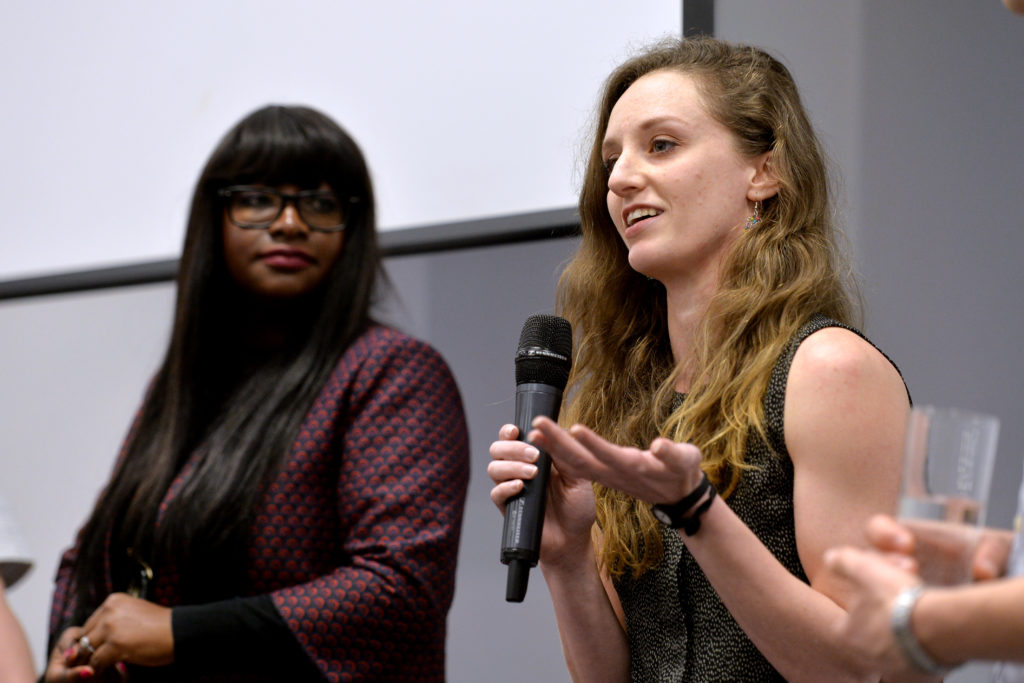Panel: TechUp Women
Read this post featured on TechUp
In January, 2020, I had the pleasure of participating in the final residential weekend of the TechUp program. The program gave me an opportunity to mentor a developing technologist in the final year of her biophysics PhD who is moving into data science. We worked together throughout the year combining her coursework from the TechUP curriculum with my experience of applied data science at Capital One to bridge the gap between academic projects and the workplace. We practiced breaking up big questions into smaller decisions and analyses to produce the best solution, collaborative development of a project on GitHub, modular package design, and unit testing. These skills were part of my learning curve over the past year, and they are critical for anyone who wants to hit the ground running- especially if they’re gaining business context as well.
While (wo)manning the recruiting table I had the chance to meet more participants in the program, including those not on the data science track. It was great to meet so many individuals who also come from non-tech backgrounds and to learn why they chose to change careers. I admittedly forgot how terrifying that transition was when I did it, so I was caught off-guard when participants downplayed their previous work experience. That habit had to be coached out of me because I had originally deemed my previous roles irrelevant to my new direction. I’ve been fortunate to have worked in companies that were fairly current on industry buzzwords and offered straightforward CV skills, so once I shifted my perspective it wasn’t difficult to reframe my Chemical Engineering experience for a Data Science job description. However, skills like project management, lean operating, and team leadership may not have been as easily identified in, say, an academic environment, and picking out these buzzwords with a mentor or industry expert is invaluable.

During the residential I participated in a panel discussion on interviewing. In addition to questions about posture, projecting confidence, and required qualifications vs. listed qualifications, there was a lot of interest in accessibility- specifically strategies for engaging interviewers or recruiters when flexible working is required. These conversations were incredibly insightful and have deepened discussions of accessibility and inclusiveness in our recruiting process.
In addition to all of the questions and conversations it’s raised in my head, the overall feeling I got from the TechUp graduation was a huge amount of excitement. The participants have bright futures ahead of them, once they recover from the exhaustion that comes from studying while working full time.